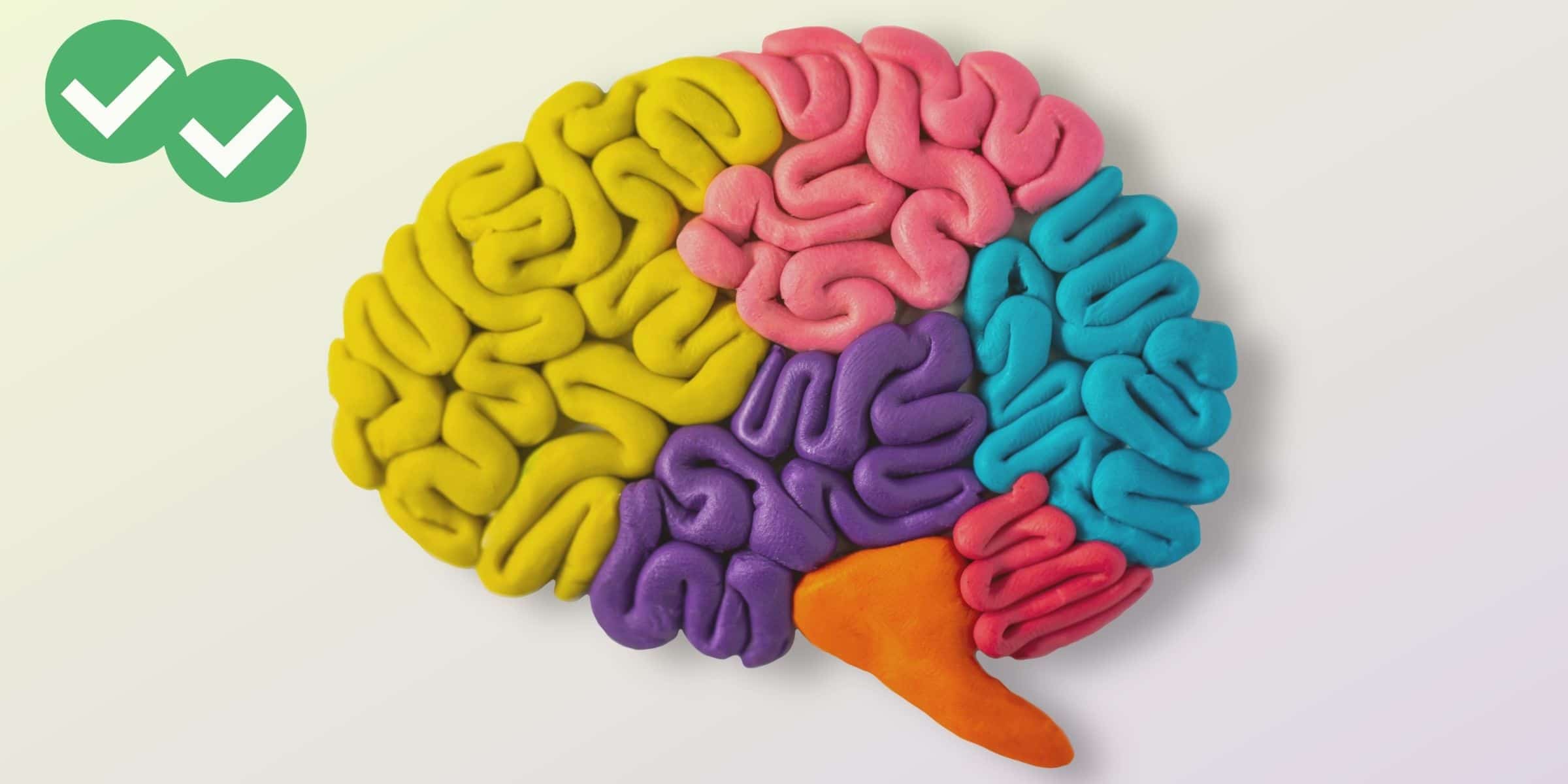
Along your English learning journey, you’ve probably made leaps and bounds in your vocabulary, working your way up to a level of advanced English vocabulary! So why is it important to learn more vocabulary? An expanded vocabulary creates opportunities to communicate in ways that can benefit your academic pursuits (see the definition of pursue below!), career goals, and your daily experiences.
In this post, we will show you two types of advanced English vocabulary – words for daily communication and words to know for the TOEFL test.
If you need some tips on how to learn and remember more advanced words, check out our tips to improve your English vocabulary.
How to Read and Use This Post
Each of the twenty words in this blog post will be presented in this way:
Vocabulary word (pronunciation) – part of speech
Colloquial (simple) definition and common usage
Example of how to use it in a sentence
For each word you should start by carefully reading the word, pronunciation, and part of speech. Then move on to the definition and common usage, taking time to explore anything that may confuse you and looking up any words in the definition that are unfamiliar. Then, move on to the example sentence, reading it several times to make sure you understand how the word is used. Finally, take some time to write the word in some sentences of your own. Understanding how a word is used in context is one of the best ways to not only remember the word’s meaning, but to understand how English sentences are constructed. Be sure to move slowly and deliberately through the words. Some students rush through trying to rote memorize thousands of words, but if you don’t understand the word fully you can get confused if you see it in unfamiliar contexts.
10 Advanced English Vocabulary Words to Know for the TOEFL
Are you trying to pick up advanced English vocabulary in preparation for the TOEFL? The words in the list below come directly from our TOEFL Vocabulary Flashcards. These flashcards are a great online tool with advanced English vocabulary words to help you get ready for the test!
Apparent – /əˈpar(ə)nt/ – adjective
Something that is apparent is obvious, visible or clear, but is not necessarily true or factual. Something can be apparent to one person, but no so for another.
It was apparent to me that he was a trained dancer, but the others had no idea.
Aspect – /ˈaspɛkt/ – noun
An aspect of something encompasses a part of something that you can see. Aspects can be tangible or intangible. You can love different aspects of being a teacher (intangible) or you can love the different aspects of the human figure (tangible).
The movie correctly portrayed the different aspects of living in a large city.
Derive – /dɪˈrʌɪv/ – verb
Something derived comes from something else. The term is often used when describing an idea or observation that came from another source or describing parts that make up the whole of something (like food).
Vegans do not eat products derived from animals.
Facilitate – /fəˈsɪlɪteɪt/ – verb
Generally refers to the act of making a process easier. Many careers are centered around making certain processes easier such as a lawyer. This would also fit nicely in a list of common business words.
My lawyer facilitated the process of purchasing our home.
Monitor – /ˈmɒnɪtə/ – verb
Monitor means to check the welfare or status of something. The term is commonly used in reference to children. Teachers have to monitor their students to make sure they’re behaving. Schools have a hall monitor to make sure students are in class.
I called my mom to help monitor the children while we were painting our home.
Proportion – /prəˈpɔːʃ(ə)n/ – noun
Something in proportion is balanced. You could describe a person’s facial features as being in proportion. However, you can also use the term to relate different numbers of objects. If you had a large bag of apples and a very small bag of bananas, you could say the proportion of apples to bananas is uneven.
We tried to give away equal amounts of food to everyone, but our proportions were off.
Pursue – /pərˈso͞o/ – verb
To pursue something means to follow or proceed on a course with the intention of completing a goal. A hungry lion will pursue its prey in order to eat, and you can pursue your goal of learning more vocabulary.
Doug was set on pursuing his goal of being a world-renowned chef.
Retain – /rəˈtān/ – verb
The term retain simply means the ability to keep something and is usually used in reference to keeping possessions in different situations. However, it can also be heard in keeping particular traits over time.
The play ran for 20 years but always seemed to retain its novelty.
Theory – /ˈTHirē/ – noun
A theory is a general idea or belief that can be about anything. A scientist can have a theory about why something happens just as a detective can have a theory about how a crime was committed.
She said she had a theory that aliens from Mars visited the Earth centuries ago.
Underlying – /ˌəndərˈlīiNG/ – adjective
Something underlying can describe an actual object or objects that are beneath other objects. Or, it can describe the root or basic cause of something. This term is commonly used in the medical field to describe symptoms of an illness.
The little girl had a fever, but the test gave no underlying cause for her symptoms.
10 Advanced English Vocabulary Words for Daily Communication
Once you’ve mastered your basic conversational English, it’s time to start learning more advanced English vocabulary for everyday communication. Here are 10 vocabulary words to get you started–but don’t stop here!
Pick one or two words from this vocabulary list to learn every day, and you will be well on your way to having a more diverse vocabulary!
Adapt – /əˈdapt/ – verb
Something that can adapt is something that can adjust to different situations; like how a chameleon uses its skin to change colors.
Soldiers have the ability to adapt to many different conditions and environments.
Adjacent – /əˈdʒeɪs(ə)nt/ – adjective
Adjacent items are next-to or near each other. Two houses that are side-by-side are considered adjacent. A table in a room is adjacent to a desk located in the same room.
They bought a house adjacent to the one owned by his grandparents.
Enhance – /ɪnˈhɑːns,ɛnˈhɑːns/ – verb
When you enhance something, you make it better or more advanced. The word can be applied to literally anything you want to make better, but the term commonly used in reference to technology.
The company installed new software to enhance productivity.
Equivalent – /ɪˈkwɪv(ə)l(ə)nt/ – adjective
If something is equivalent to something, it can be the exact same or similar in quality or purpose. For example, 7Up is the equivalent of Sprite. They are both citrusy, lime flavored soft drinks with a biting texture. The term is used in the context of something being “just as good” as something else.
My husband claims his home-cooked steaks are the equivalent of a fine-dining steakhouse, but I question that statement.
Imply – /ɪmˈplʌɪ/ – verb
Telling something (a feeling or idea) without outright speaking or indicating it. You can imply with your words or body language.
In the meeting, he glanced at his watch to imply it was time to finish quickly.
Innovate – /ˈɪnəveɪt/ – verb
Innovation is usually referenced to improving products, methods or ideas. Companies constantly innovate their products in order to make them better and more marketable.
Last year, Microsoft made innovations in their operating system that will make them one step ahead of any competitor in the market.
Minimal – /ˈmɪnɪm(ə)l/ – adjective
To be the minimal is to be the absolute lowest of something. Financial institutions use this often in reference to amount required to open an account.
The minimal amount required to open an account at my bank is five-hundred dollars.
Partially – /ˈpɑːʃ(ə)li/ – adverb
The definition of partially takes on the first “part” of the word. Anything partially is only a part of something. It can be applied to things and ideas. A door can be partially open and a dad can be partially involved in his children’s lives.
I looked around the corner and could only partially see the car because the street light was out.
Precise (pre-cise) – adjective
Use precise when you want to state or indicate that something is absolutely true or correct. In Science, you use precise measurements because something unintended might happen if a measurement is off. If you speak of a precise moment, that is the exact moment down to the millisecond that something occurred.
The engineer said he used precise measurements, but alas, the rocket exploded on the launchpad.
Various – /prɪˈsʌɪs/ – adjective
When something is various, it indicates that there is an inexact number of different objects. It is usually used to describe a group of objects that is too vast or different to describe individually. Like a room full lights with various colors. Or a group of people of various heights.
We went to the farm and saw various animals roaming about.
Takeaways
Studying vocabulary can be hard and slow work – don’t give up or get frustrated if you don’t see results right away! The time you spend learning many English vocabulary words and working on understanding how they work in sentences will help you get better at reading and understanding English word by word. Have you mastered these twenty words and want to explore more? Check out our TOEFL vocabulary app for iOS or Android now! Taking our free TOEFL practice test is a great way to see how your vocabulary study is paying off in test performance. And consider signing up for a free trial of our TOEFL Premium Plan to get access to world-class TOEFL prep materials today!






Leave a Reply